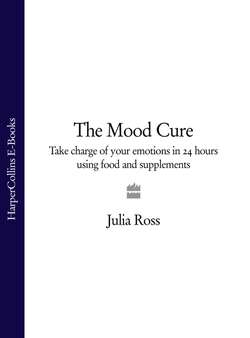Читать книгу The Mood Cure: Take Charge of Your Emotions in 24 Hours Using Food and Supplements - Julia Ross - Страница 90
WHERE ARE YOU ON THE ADRENAL BURNOUT CONTINUUM?
ОглавлениеHow do you know if you’ve experienced too much stress? Your score on part 3 of the Mood-Type Questionnaire gave you one indication. For a much more complete picture, look at the following list of the common symptoms of adrenal exhaustion. Think about which of these symptoms in particular apply to you, how often you experience them, and how much they bother you.
Sensitivity to exhaust fumes, smoke, smog, petrochemicals
Inability to tolerate much exercise, or you feel worse after exercising
Depression or rapid mood swings
Dark circles under the eyes
Dizziness upon standing
Lack of mental alertness
Tendency to catch colds easily when weather changes
Headaches, particularly migraines, along with insomnia
Breathing difficulties
Edema (water retention)
Salt cravings
Trouble falling asleep or staying asleep
Feeling of not being rested upon awakening
Feeling of tiredness all the time
Feeling of being mentally and emotionally overstressed
Low blood sugar symptoms
Need for caffeine (coffee, tea, and others) to get you going in the morning
Low tolerance of loud noises and/or strong odors
Tendency to startle easily
Food or respiratory allergies
Recurrent, chronic infections, such as yeast infections
Lightheadedness
Low tolerance for alcohol, caffeine, and other drugs
Fainting
Tendency to get upset or frustrated easily, quick to cry
Tendency to get a second wind at night
Low blood pressure
Haven’t felt your best in a long time
Eyes sensitive to bright light
Feeling of being weak and shaky
Fatigue and muscular weakness
Sweating or wetness of hands and feet caused by nervousness or mood swings
Ability, sometimes, to relieve depression and moodiness by eating
Frequent heart palpitations
Chronic heartburn
Vague indigestion or abdominal pain
Infrequent urination
Sweet cravings
Lack of thirst
Clenching and/or grinding of teeth, especially at night
Chronic pain in the lower neck and upper back
Inability to concentrate and/or confusion, usually along with clumsiness
An unusually small jawbone or chin; lower teeth crowded, unequal in length, or misaligned
A chronic breathing disorder, particularly asthma
An excessively low cholesterol level (below 150 mg/dl)
Bouts of severe infection
